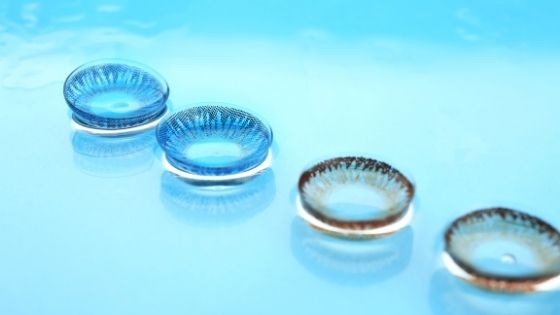For people with eyesight problems, contact lenses are an effective and almost invisible tool.
Millions of people prefer wearing contact lenses like clariti today. If you also want to join the group but sitting on the fence pondering which one would be the best for you, no need to fret! Here you will find complete information about contact lenses. Continue reading!
Types of contact lenses
Hard and Soft contact lenses are the two major categories of lenses. Though hard lenses came into the market much before soft lenses, you will find less than 10% of contact wearers wearing soft lenses today. The reason is pretty apparent. Soft contact lenses pose less risk of infection, and they are easy to carry and more comfortable to wear than their counterparts. Almost every optician recommends using soft lenses unless you have some particular eye problem requiring hard lenses. As technology is evolving, various types of lenses like clariti have flooded the market and offer you bewildering choices.
Daily disposable lenses
This is a type of soft lens that you have to wear only for a single day and then throw away. Daily disposable lenses are the most preferred choice because they pose less risk of contamination and have a shorter care routine. So if you have some allergy, you can go for it. With a new lens each day, there is the least or no chance of allergies building up. Plus, make sure you throw them after each usage; otherwise, reusing them can harm your eyes.
Extended Wear Contact lenses
Do you know there are lenses that you can wear overnight? Yes! No need to remove your lenses at bedtime. Extended wear contact lenses are silicon-based lenses that can be worn for up to 30 days continuously. However, they can cause severe complications because they allow debris to build up under the lenses and lead to eye infections. Professionals always recommend removing all types of lenses before going to bed and follow routine care.
Rigid gas permeable contact lenses
If you have dry eyes or are not satisfied with using soft contact lenses, rigid gas permeable contact lenses are the right alternative. They are known to provide a clear, crisp vision for people even with most vision problems. Plus, they are more durable and also more breathable than soft lenses. But, you will have to remove them for cleaning and disinfection regularly.
Specialised contact lenses
Depending on your eye problem, you will need specialised types of lenses. For example,
- For astigmatism: If you have astigmatism (an eye problem in which a person has an unevenly shaped cornea or the lens inside the eye resulting in blurred vision), you will need either hybrid lenses, gas permeable lenses or toric lenses.
- Multifocal contact lenses: These types of lenses are used to correct farsightedness, nearsightedness and presbyopia.
- Tinted contact lenses: This type of lenses is used for cosmetic or therapeutic purposes.
- Scleral contact lenses: They are rigid gas-permeable lenses that extend to the white outer layer of the eyeball (sclera).
- Orthokeratology: These are also rigid gas-permeable lenses worn at bedtime to change the curve of your cornea temporarily.
How to choose contact lenses?
Well, this is the decision you should make with your doctor. There are a number of factors that will determine which lenses are right for you including, your refractive error, how often you will be wearing the lenses, how willing you are to take care of your lenses, do you require overnight wearable lenses, do you want to change your eye colour and so on. Better you talk to your doctor first and then make the decision.

















